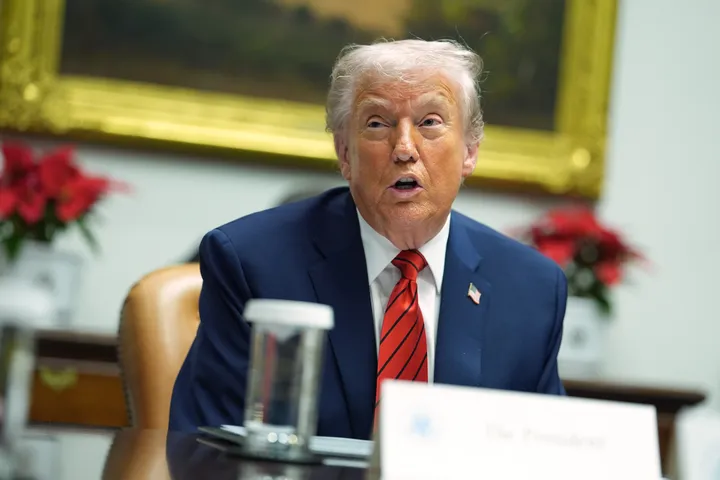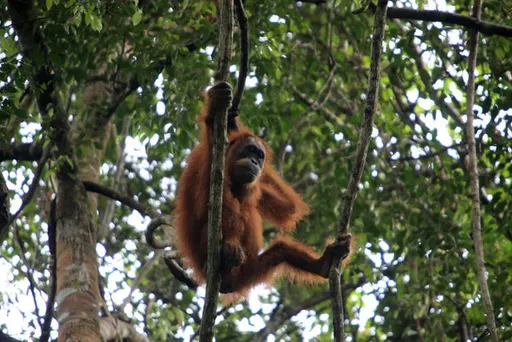The Group of Seven leaders have warned China over its "militarisation activities" in the Asia-Pacific region but said the bloc also wanted "constructive and stable relations" with Beijing in a final communique.
At Saturday's summit in Hiroshima, G7 laid out a raft of concerns about China's economic and military activities while also keeping the door open to cooperation and avoiding further inflaming tensions between the world's second-largest economy.
"We stand prepared to build constructive and stable relations with China, recognising the importance of engaging candidly with and expressing our concerns directly to China," the group said.
The bloc, however, warned against China's "militarisation" in the South China Sea and repeated that "peace and stability" in the Taiwan Strait is "indispensable" to global security.
"Our policy approaches are not designed to harm China nor do we seek to thwart China's economic progress and development," the statement continued, adding that the G7 countries are not "decoupling or turning inwards".
Still, the language made clear the bloc's wide-ranging concerns about Beijing's willingness to deploy trade measures in diplomatic disputes and G7 determination to untangle sensitive supply chains from Chinese influence.
"Economic resilience requires de-risking and diversifying," the communique said, pledging to "reduce excessive dependencies in our critical supply chains".
The group also urged China to use its influence with Russia "to stop its military aggression, and immediately, completely and unconditionally withdraw its troops from Ukraine".
Security concerns
There is increasing anxiety that Beijing, which has been steadily building up its nuclear weapons programme, could try to seize Taiwan by force, sparking a wider conflict. China claims the self-governing island as its own and regularly sends ships and warplanes near it.
In their final communique, the bloc warned against China's "militarisation" in the South China Sea and repeated that "peace and stability" in the Taiwan Strait is "indispensable" to global security.
They had earlier issued a statement warning that China's "accelerating build-up of its nuclear arsenal without transparency (or) meaningful dialogue poses a concern to global and regional stability."
They also urged North Korea, which has been testing missiles at a torrid pace in an attempt to perfect a nuclear program meant to target the mainland United States, to completely abandon its nuclear bomb ambitions.
That includes "any further nuclear tests or launches that use ballistic missile technology. North Korea cannot and will never have the status of a nuclear-weapon State under" international nuclear treaties, according to the statement.
Zelenskyy visit
G7 face a high-stakes balancing act as they look to address a raft of global worries demanding urgent attention, including climate change, AI, poverty and economic instability, nuclear proliferation and, above all, the war in Ukraine.
The leaders' focus on Asia comes ahead of the arrival later on Saturday of Ukrainian President Volodymyr Zelenskyy, whose attendance stems from his "strong wish" to participate in talks that will influence his nation’s defence against Russia, confirmed Japan.
United States national security adviser Jake Sullivan said that President Joe Biden and Zelenskyy would have a direct engagement at the summit, a day after Biden announced his support for training Ukrainian pilots on US-made F-16 fighter jets, a precursor to eventually providing those aircraft to Ukraine’s Air Force.
The green light on F-16 training is the latest shift by the Biden administration as it moves to arm Ukraine with more advanced and lethal weaponry, following earlier decisions to send rocket launcher systems and Abrams tanks.
The United States has insisted that it is sending weapons to Ukraine to defend itself and has discouraged attacks by Ukraine into Russian territory.
"We’ve reached a moment where it is time to look down the road again to say what is Ukraine going to need as part of a future force, to be able to deter and defend against Russian aggression as we go forward," Sullivan said.
Biden told leaders that his decisions on when, how many, and who will provide the fourth-generation F-16 fighter jets will be made in the months ahead while the training is underway.
Zelenskyy has consistently called for Western fighter jets to bolster his country’s defences. As Ukraine has improved its air defences with a host of Western-supplied anti-aircraft systems and prepares to launch a counteroffensive against Russia, officials believe the jets could become essential to the country’s long-term security.
An EU official, speaking on condition of anonymity to brief reporters on the deliberations, said Zelenskyy will take part in two separate sessions on Sunday.
The first session will be with G7 members only and will focus on the war in Ukraine. The second session will include the G7 as well as the other nations invited to take part in the summit, and will focus on "peace and stability."
The G7 leaders are also to discuss efforts to strengthen the global economy and address rising prices that are squeezing families and government budgets around the world, particularly in developing countries in Africa, Asia and Latin America.
A US official said the leaders on Saturday would issue a joint communique outlining new projects in the G7’s global infrastructure development initiative, which is meant to offer countries an alternative to China’s investment dollars.
























